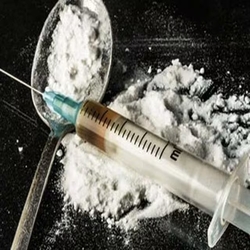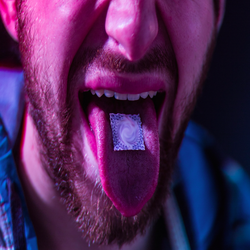DEADDICTION

Alcohol
Alcohol deaddiction involves a multifaceted approach. Diagnosis includes assessing the severity of dependence through interviews and questionnaires. Treatment combines medical interventions, counselling and support groups. Medications may manage withdrawal symptoms, while therapy addresses underlying issues. Ongoing support and relapse prevention strategies are crucial for sustained recovery.

Tobacco
Tobacco deaddiction involves a comprehensive strategy. Diagnosing tobacco dependence includes assessing usage patterns and motivation to quit. Treatment incorporates counselling, behavioural therapies and medications to manage cravings. Support systems, such as quitlines, enhance success. Personalized plans, ongoing follow-ups and a commitment to behavioral change contribute to successful tobacco cessation.

Smack
Smack deaddiction, referring to heroin or opioid dependence, involves medical and behavioural interventions. Diagnosis assesses dependence severity through clinical evaluation. Treatment includes medications like methadone or buprenorphine, coupled with counselling and support groups. Gradual withdrawal, relapse prevention and long-term recovery support are integral for successful smack deaddiction.

Opium
Opium deaddiction involves a comprehensive approach. Diagnosis assesses the degree of dependence through clinical evaluations. Treatment combines medications, such as methadone or buprenorphine, with behavioral therapies and support groups. Gradual withdrawal, relapse prevention strategies and ongoing support contribute to a successful opium deaddiction process.

Cannabis
Cannabis deaddiction addresses marijuana dependence through a holistic approach. Diagnosis involves assessing usage patterns and motivation to quit. Treatment integrates behavioral interventions, counselling and support groups. Cognitive-behavioural therapy helps individuals develop coping strategies, while ongoing support and relapse prevention strategies play key roles in achieving successful cannabis deaddiction.

Cocaine
Cocaine deaddiction involves a multifaceted approach. Diagnosis assesses dependence severity through clinical evaluation. Treatment combines medications for withdrawal symptoms, counselling and support groups. Cognitive-behavioral therapy aids in relapse prevention. Ongoing support, lifestyle changes and addressing underlying issues contribute to successful cocaine deaddiction and long-term recovery.

I/V Injections
Intravenous (I/V) injections deaddiction involves a targeted strategy. Diagnosis assesses the extent of dependence through clinical evaluation. Treatment integrates medications, counselling and support groups. Gradual withdrawal, addressing underlying issues and ongoing support contribute to a successful recovery, emphasizing the cessation of intravenous drug use and promoting overall well-being.

LSD
LSD deaddiction focuses on hallucinogen dependence. Diagnosis involves assessing usage patterns and motivation to quit. Treatment integrates counselling, psychotherapy and support groups. Addressing psychological factors and fostering a supportive environment are key. Personalized plans, ongoing follow-ups and a commitment to behavioural change contribute to successful LSD deaddiction.
